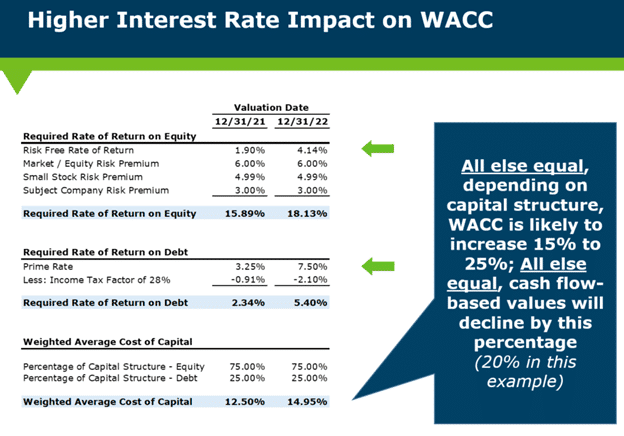Rethinking Middle Management: Their Contribution To Organizational Success And Employee Well-being

Table of Contents
The Evolving Role of Middle Management in a Modern Workplace
Middle managers are no longer simply messengers; they are strategic partners, bridging the gap between leadership and frontline employees. The traditional command-and-control style of middle management is rapidly becoming obsolete, replaced by a more collaborative and empowering approach. This shift necessitates a new skillset for middle managers, emphasizing coaching, mentorship, and agile leadership.
-
Increased emphasis on coaching and mentoring: Effective middle managers now act as mentors, guiding and supporting their teams' professional development. This includes providing regular feedback, identifying training needs, and fostering a culture of continuous learning. They are less focused on directing tasks and more on developing the capabilities of their teams.
-
Focus on employee development and growth: Investing in employee growth is a key responsibility. Middle managers should actively identify opportunities for their team members to upskill and advance within the organization. This fosters loyalty and a sense of career progression.
-
Facilitation of cross-functional collaboration: Modern workplaces demand seamless collaboration across departments. Middle managers are essential in coordinating projects and initiatives that involve multiple teams, breaking down silos and fostering a collaborative environment.
-
Agile project management and adaptation to change: The ability to adapt quickly to changing priorities and market demands is critical. Middle managers must be adept at agile project management methodologies, enabling their teams to respond effectively to unforeseen challenges and opportunities.
-
Data-driven decision-making and performance analysis: Middle managers should utilize data and analytics to inform their decision-making and track team performance. This ensures that strategies are data-backed and that improvements are measurable and impactful.
Middle Management's Contribution to Organizational Success
Effective middle managers are the engine room of organizational productivity and efficiency. They translate high-level strategic goals into actionable plans, monitor progress, and ensure alignment across teams. This direct impact is visible in several key performance indicators (KPIs).
-
Improved team performance and productivity metrics: A well-managed team consistently outperforms a poorly managed one. Middle managers who foster a positive and productive work environment directly impact output and efficiency.
-
Enhanced communication and information flow: Effective communication is paramount. Middle managers facilitate clear, consistent communication between senior leadership and frontline employees, preventing misunderstandings and ensuring everyone is on the same page.
-
Streamlined workflows and reduced operational bottlenecks: Identifying and eliminating inefficiencies is a core responsibility. Middle managers play a crucial role in optimizing workflows and processes, reducing bottlenecks and improving overall operational efficiency.
-
Successful implementation of company strategies and initiatives: Middle managers are critical in ensuring that company-wide strategies and initiatives are successfully implemented at the team level. They provide the necessary support and resources to achieve desired outcomes.
-
Increased profitability and return on investment (ROI): The cumulative effect of improved efficiency, productivity, and successful implementation of strategies directly translates to increased profitability and a higher return on investment.
Fostering Innovation and Adaptability Through Middle Management
Middle managers are not just executors; they are catalysts for innovation. They act as a bridge between employees and senior leadership, facilitating the flow of innovative ideas and fostering a culture of experimentation.
-
Identifying and nurturing talent within the organization: Middle managers are often the first to identify high-potential employees and provide them with opportunities for growth and development. This fosters innovation by encouraging talent to flourish.
-
Encouraging employee feedback and suggestions: Creating a culture where employees feel comfortable sharing their ideas is essential for innovation. Middle managers should actively solicit feedback and incorporate suggestions into team processes.
-
Implementing new technologies and processes: Middle managers play a key role in introducing and implementing new technologies and processes, ensuring that their teams are equipped with the tools they need to be innovative and efficient.
-
Adapting to market changes and competitive pressures: Middle managers must be able to adapt their teams to changing market conditions and competitive pressures. This involves flexibility, responsiveness, and the ability to make quick decisions.
-
Fostering a culture of continuous improvement: A culture of continuous improvement requires ongoing assessment and adaptation. Middle managers should actively encourage their teams to identify areas for improvement and implement changes to enhance efficiency and effectiveness.
Middle Management and Employee Well-being
The impact of middle management extends beyond productivity; it significantly impacts employee well-being. Effective middle managers create supportive, positive environments that promote employee engagement and retention.
-
Improved employee morale and job satisfaction: A supportive and understanding manager significantly impacts morale. Employees working under effective middle managers tend to be more satisfied with their jobs and have a higher level of engagement.
-
Reduced employee stress and burnout: A well-managed team experiences less stress and burnout. Middle managers can mitigate stress by providing clear expectations, adequate support, and work-life balance initiatives.
-
Increased employee engagement and productivity: Engaged employees are more productive. Middle managers play a crucial role in fostering employee engagement through open communication, recognition, and opportunities for growth.
-
Lower employee turnover rates: High employee turnover is costly. Effective middle management contributes to lower turnover by creating a positive and supportive work environment where employees feel valued and appreciated.
-
Stronger company culture and values: Middle managers embody and reinforce company culture and values, ensuring consistent application across teams.
Developing High-Performing Middle Management Teams
Investing in the development and training of middle managers is an investment in the future success of the entire organization. Empowering them with the right skills and resources is vital.
-
Leadership training and development programs: Providing access to leadership training programs equips middle managers with the skills they need to effectively lead and motivate their teams.
-
Mentorship and coaching opportunities: Pairing middle managers with experienced mentors or coaches provides valuable guidance and support. This fosters professional growth and improves leadership capabilities.
-
Performance management and feedback mechanisms: Regular performance reviews and constructive feedback are essential for growth. These mechanisms help middle managers identify areas for improvement and track their progress.
-
Succession planning and career development initiatives: Having a clear succession plan ensures a smooth transition of leadership and provides career advancement opportunities for high-performing middle managers.
-
Providing the tools and resources necessary for success: Equipping middle managers with the necessary tools, technology, and resources empowers them to perform their roles effectively.
Conclusion:
Rethinking middle management reveals its crucial role in organizational success and employee well-being. By investing in their development, empowering them with the right tools and resources, and fostering a supportive work environment, organizations can unlock the full potential of their middle management teams. Effective middle management is not just about managing tasks; it's about leading people, driving innovation, and building a thriving workplace. Embrace a new perspective on middle management and witness the positive impact on your organization's bottom line and employee satisfaction. Invest in your middle management today for a brighter tomorrow. Improve your middle management strategies and watch your organization flourish.

Featured Posts
-
 Faa Investigates Collision Risks At Las Vegas Airport
Apr 24, 2025
Faa Investigates Collision Risks At Las Vegas Airport
Apr 24, 2025 -
 Are High Stock Market Valuations A Concern Bof A Says No Heres Why
Apr 24, 2025
Are High Stock Market Valuations A Concern Bof A Says No Heres Why
Apr 24, 2025 -
 Nifty50s Ascent Analyzing The Positive Market Trends In India
Apr 24, 2025
Nifty50s Ascent Analyzing The Positive Market Trends In India
Apr 24, 2025 -
 John Travoltas Rotten Tomatoes Record Is It Really That Bad
Apr 24, 2025
John Travoltas Rotten Tomatoes Record Is It Really That Bad
Apr 24, 2025 -
 Teslas Q1 Financial Results The Musk Factor And Its Consequences
Apr 24, 2025
Teslas Q1 Financial Results The Musk Factor And Its Consequences
Apr 24, 2025
